Dr Swaraj tells us about a crooked wisdom tooth. What was its plight? Here’s an exciting account, replete with sparkling wit and humour, exclusively for Different Truths.
After withdrawing the mirror probe from my mouth, the great dentist said reassuringly, “Nothing to worry. Your gums are fine. There’s no infection. There’s just one problem. I believe your wisdom tooth is struggling to erupt. It is impacted, and it is crooked. This molar is the cause of pain. I’m recommending an X-Ray, after which we’ll decide what we’ve to do.” “What will you do then?” I asked with trepidation. “Next course of action I’ll decide after seeing the X-Ray,” he said. Then he wrote something on a piece of paper and handed it to me. “Go to the X-Ray room. Take this slip and get your X-Ray done,” he said. “The next course of action?” I queried. “We may have to perform surgery to extract the tilted tooth. If it’s straight, then we may just give a cut to allow it to come out,” he declared with the finality characteristic of an experienced surgeon.
The words ‘erupting’, ‘crooked’, and ‘tilted’ made all my teeth rattle. No, not only my teeth, my mind too.
I was alarmed. How could it be? The words’ erupting’, ‘crooked’, and ‘tilted’ made all my teeth rattle. No, not only my teeth, my mind too. I never knew something could erupt in the mouth, except choice expletives erupting spontaneously from it. Not always, but whenever I lost my cool, which was quite often. I had heard about crooked trees and crooked minds. But a crooked tooth was a novelty. Moreover, it was my wisdom tooth facing the imminent danger of extraction for being crooked! I was about to enter my fifth decade after being born toothless forty years ago. I had heard that the right age for the wisdom tooth to emerge was the late teens. This is the time when a youngster is supposed to grow wiser. But my teens had passed without the wisdom tooth and, consequently, without wisdom. And then the wisdom tooth that took forty years to come was also crooked. How sad!
Until then, I had never doubted my judgement’s straightness (no puns intended). But now, for the first time, I had some doubts. Was this tilted wisdom tooth responsible for all the crazy decisions I had made till then? Perhaps it was. But how could I be sure? To be sure, I needed to find someone without a crooked wisdom tooth. Only he could tell me if he had always made only wise decisions.
But I was aware of the difficulties involved in this project. Finding a person with a straight wisdom tooth posed insurmountable problems. I was not a dentist. I did not have the mirror probe. Nobody would allow me to use it, even if I purchased or borrowed one. Why should they? Until my mouth was mirror probed, I had believed only a loving tongue could do that. That, too, never in a dentist’s malodourous room. But in moments intimate, away from the public gaze.
Moreover, you can’t depend upon the claims of a wise person about him being wise. Hadn’t I always believed that I was no less than Aristotle? A font of wisdom that could never go wrong? And now I was found with a tilted wisdom tooth! Thus, finding a wise person with a straight wisdom tooth won’t dispel my doubts.
My situation was quite complicated.
My situation was quite complicated. My wisdom tooth was not only crooked but impacted too. Surely enough, the other ones had ganged up to prevent the crooked one from erupting. Who likes wisdom to flourish? History is full of examples of prophets who had met a violent end. Was my wisdom tooth also destined to meet a similar fate? Or was it afraid of growing up? I was reminded of Rajesh Reddy’s couplet: “Mire dil ke kisi kone mein ik maasoom sa bachcha / Badon ki dekh kar duniya bada hone se darta hai.” (In some corner of my heart dwells an innocent child / On seeing the world of grown-ups, he dreads growing up).
Strange how our mouths are homes to horrible conspiracies like the world around us!
I went to the X-Ray room. A beautiful, lissome young lady doctor attended to me. She was the best person to allay my apprehensions about my wisdom tooth. I had to talk to her.
I asked her about the tilted wisdom tooth. She replied that evolution is behind it. “Isn’t evolution good?” I asked. She explained patiently that we have descended from the apes who still have big jaws. That’s because they have to use all their teeth. Long ago, we, too, had big jaws like our ancestors. We hunted and foraged for food. We needed strong teeth and jaws to chew the food we gathered. Now, with changing food habits, the size of our jaws has shrunk. The number of teeth has remained the same, but the jaws have become smaller. Hence, the teeth that come out late have to jostle for space. “It means there’s a problem of overpopulation here, though in an inverted way.” She appeared a bit puzzled. She couldn’t have expected anything better from someone with a crooked wisdom tooth. She beamed a smile that momentarily lit up that dimly lit X-Ray’s room.
The aetiology of our shrunken jaws is to be found in evolution.
My logic was simple. With the increasing population, there’s overcrowding everywhere. In the case of our jaws, the space accommodating our teeth has shrunk. The aetiology of our shrunken jaws is to be found in evolution. Or rather, in our getting civilised. The shift from consuming raw food to cooked changed everything. Our jaws shrank. One day, in future, the wisdom teeth – the third molars – may become vestigial. They will leave only an unwanted trace, like that of the tailbone. This trace will reveal that we used to have wisdom (teeth) once upon a time. Though Eliot was already ruing the loss of wisdom in 1934 in Choruses from ‘The Rock: “Where is the wisdom we have lost in knowledge? Where is the knowledge we have lost in information?”
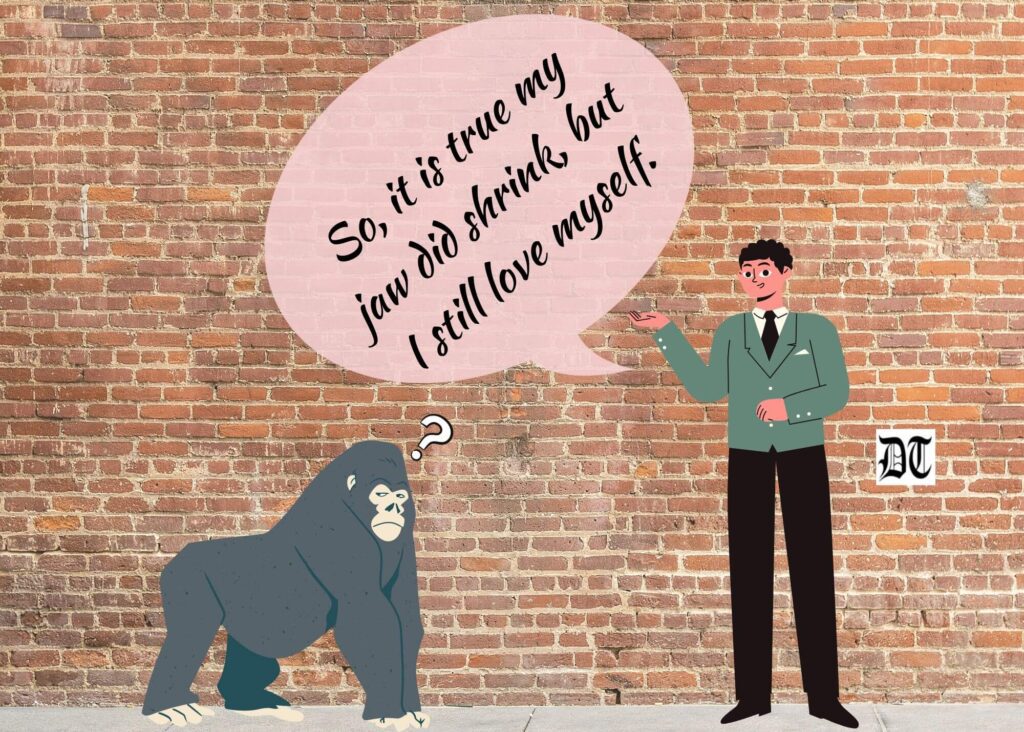
Extending the logic of unused organs becoming vestigial, I was imagining what the future held for us. Sitting idle in the X-Ray room, I thought of our propensity to outsource many tasks. Will the organs whose labour is outsourced shrink because of disuse, like our jaws?
While still lost in my thoughts, she handed me my X-Ray. After thanking her, I went to the renowned Doctor for the dreaded next course of action. He confirmed my worst fears. He prescribed some medicines and told me to come to him after three days. But I was hill bound the next day for a short summer holiday. I requested him if I could come after a week or so. He agreed. While leaving his room, I pleaded, “Doctor, can you please save my tooth? So, what if it took four decades to arrive, and it is crooked too? I don’t want to lose it. Its presence is proof of my being wise. Besides this, I love my body, however imperfect it is. I don’t want its integrity to be violated through amputation of this metaphor of wisdom.” He laughed and said, “Professor enjoy your holiday and see me after a week. What’s to be done, we’ll decide then.”
This happened about twenty-five years ago — my only visit to a dentist in my entire life.
This happened about twenty-five years ago. I had sought his help for relief from pain and swelling in my left jaw. The medicines he prescribed reduced the pain and swelling. The wisdom tooth never troubled me again. I thanked my stars for escaping the dentist’s drill. I was saved from the traumatic experience that made Ogden Nash claim:
“Some tortures are physical, and some are mental. But the one that is both is dental.” (This is Going to Hurt Just a Little Bit)
Reminiscing today about the history of my wisdom tooth, I ponder upon the present also. Outsourcing is a buzzword in the present times in almost all spheres of life. Not only do we outsource physical work, but we also outsource even our memories to digital devices. What can be the possible outcome of all this? The temporal lobes and the hippocampus in our brain carry out the memory work. Will they shrink over some time because of nonuse? In case they do, how will it affect our sense of identity? After all, our memory helps preserve our sense of self. Our identities are unfinished works of memory, the materiality of present experiences and fiction of the future. Who and what shall we be without our memories? Someone like the amnesiac hero – played by Amir Khan – in A.R. Murugadoss’s action-thriller Ghajini? Or shall we depend upon our digital devices to construct our identities from the memories stored in them? What if the memory devices fail, as our computer hard discs do? Not a very promising prospect, but not an entirely imaginary techno-horror scenario even. Prosthetic neural chip implants in human beings are no longer a figment of imagination. The cyborg utopias, however, frighten me.
Apologists of the technology say that technology extends our sensorium.
Apologists of the technology say that technology extends our sensorium. Critics, however, dismiss this utopian view as a scary chimaera. They opine that technology numbs the organ whose work amplifies it. The jury is out on this issue.
To me, my wisdom tooth being intact to date is the most important thing. Intact also are my memories to draw on without clicking a mouse.
Picture design by Anumita Roy, Different Truths

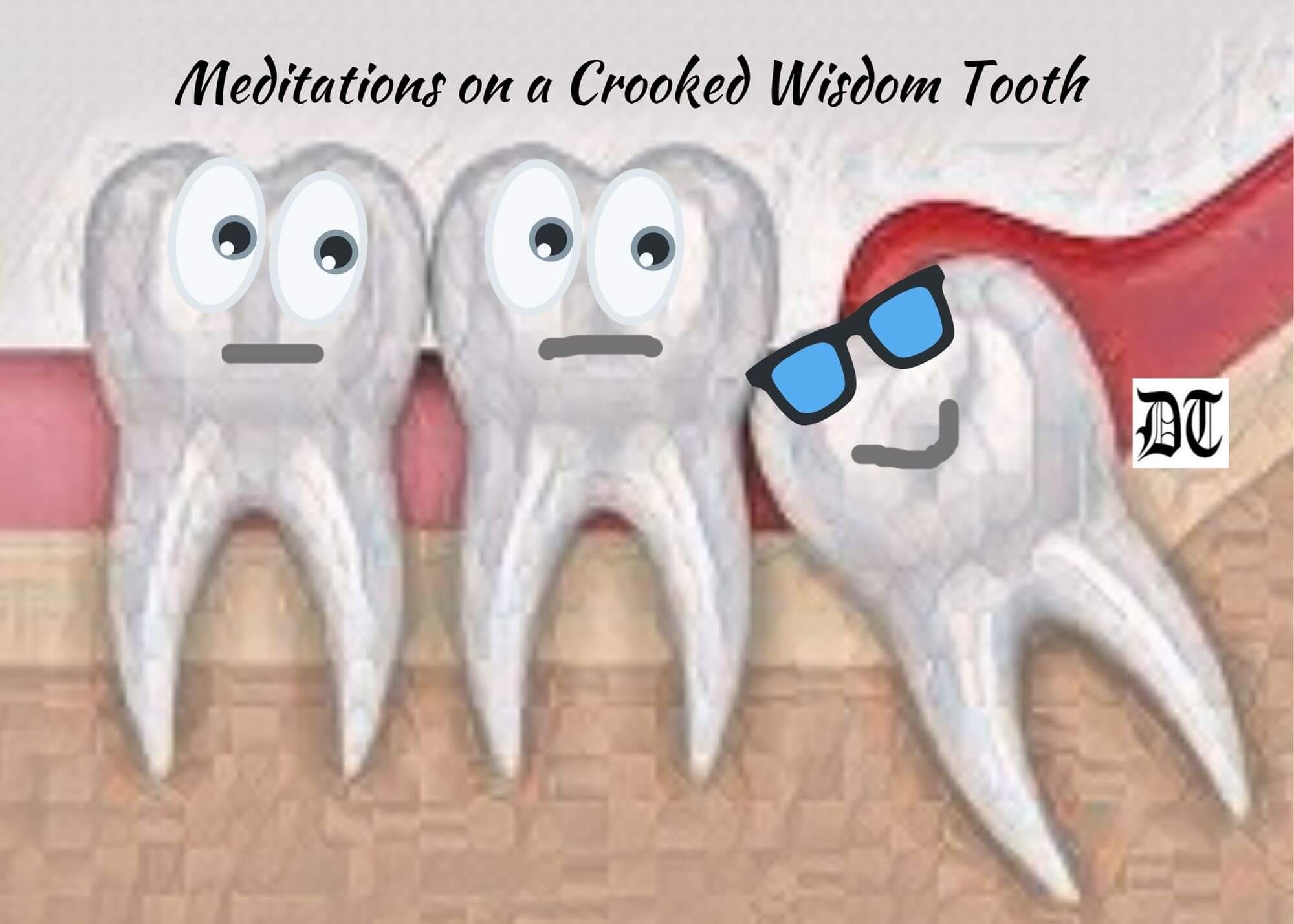
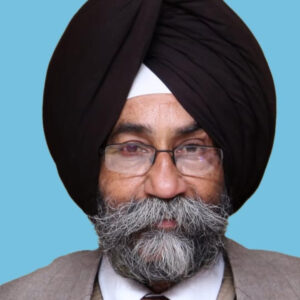
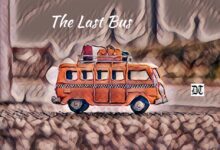


 By
By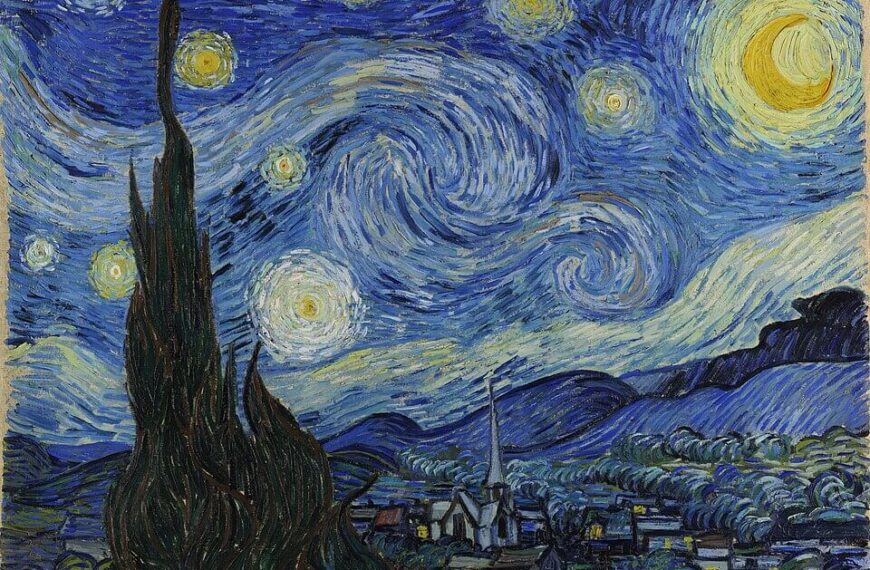
 By
By
 By
By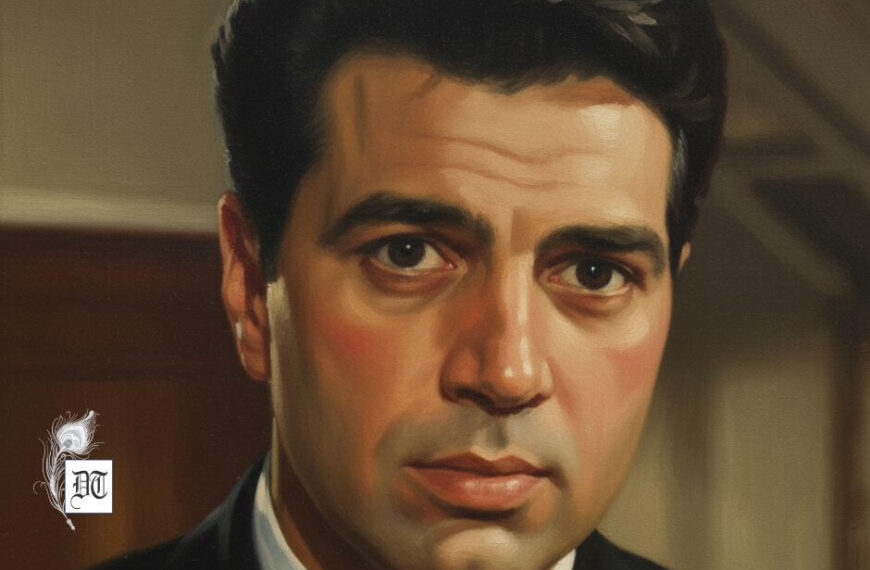
Good wisdom sir 👍
Thanks Dr. Sandeep.
Wonderful article Sir. The fantasy and imaginary fears about what will happen eventually were described in best manner possible. Such fear and fantasy becomes almost real with molar pains/ toothaches and sitting on the dental patient chair. The later concluding part is awesome too about the over dependence upon technology. Overall again a masterpiece article from your pen( digital pen).
Thanks a lot, Prof. Sahib. My reward is that you enjoyed it. Regards
Dr Saab I saved, when I saw the publication notification of this article, this piece of pie for free time when I could relish and digest all the pearls of wisdom, imagination and creativity. You are a master storyteller sir and see how you have conveyed the bigger thoughts and ideas from a very humble incident in your routine life. Hats off to you sir!!!
Thank you so much, Dr. Dhiraj. Your encouragement is always a huge boost. Regards.
Too good. The punch line was, ‘who likes the wisdom to flourish’👌😄 At least now we know why Prof Swaraj is so wise.
The fear about losing our memory and/ or other lesser used parts is not unfounded. Unused has to go. Too much dependence on technology is certainly going to adversely affect this beautiful machine called human body. The future models will certainly have less endurance; physical as well as mental. Enjoyed reading.
Thank you so much, Prof. Sahib. I appreciate your perceptive reading. You could jolly well have been as good a literary author as you are a physicist!
Grateful indeed. Regards.
What an engaging and an insightful article. The irony and the depth both make it simply gripping. The technology numbing the organs and quoting Eliot on knowledge and wisdom has embellished it further. It inspires readers to introspect. This story of wisdom tooth is actually brimming with both wisdom and wit.
Thanks, Manoj. The way you’ve summed it up, it wouldn’t have been possible for me to do so. Thanks once again and regards.
Been there done that. I still have two wisdom teeth on my bottom jaw sleeping on their side, but the upper two was yanked out by an handsome orthodontist. That makes me have witted. Loved and enjoyed every bit of your story.
Ha ha!! I think it is fairly common experience. Just loved your take on it, Anumita Ma’am. Stories surround us on all sides; what is needed are a nose to smell, ears to listen to, eyes to see them> But most importantly half the wit, crooked like a crooked third molar. Thanks a lot and regards.